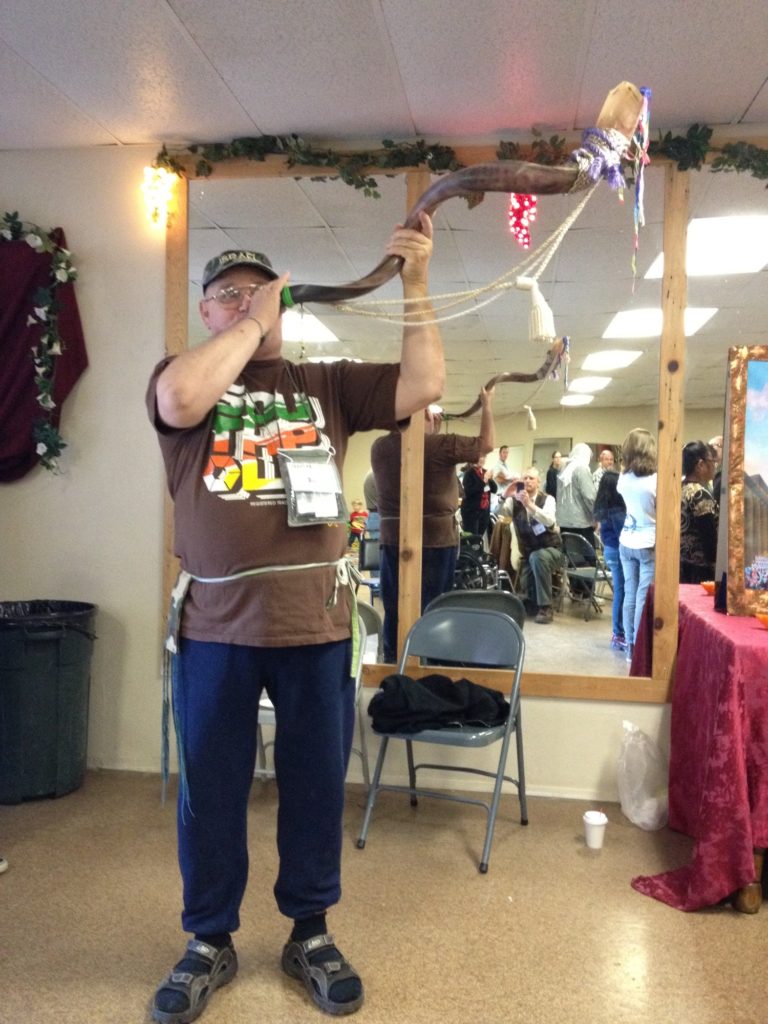Psalm 81:3, Blow the trumpet [Heb. shofar] at the time of the New Moon [Heb. chodesh], at the full moon [Heb. keseh meaning full moon or concealed, covered—scholars disagree as to its meaning and the origin of the word], on our solemn feast day [Heb. chag] — NKJV. The ArtScroll Stone Edition Tanach translates this verse alternatively as follows,
Blow the shofar at the moon’s renewal, at the time appointed for our festive day.
The origins of the Hebrew word keseh behind the phrase “full moon” is uncertain and there is debate among the experts on this subject. Some Hebrew lexicons relate it to a Hebrew root word meaning “to conceal, to cover” (e.g. Gesenius; Strong’s number H3677 cp. H3678), while others tell us that it means “fullness; full moon” (e.g. Brown Driver Briggs Hebrew Lexicon; cp. The TWOT; Strong’s). BDB tells us that the origin of keseh is unknown and that it may be an Aramaic loan word meaning “full moon.” Gesenius in his lexicon states that the etymology of keseh isn’t clear, but he favors the idea of the moon being covered or concealed in darkness as opposed to being covered in light (i.e., in its full moon state).
The only other usage of keseh in the Scriptures is found in Prov 7:20, which gives us no clue as to the exact meaning of the word.
Orthodox Jewish scholars tell us that keseh means “to conceal or to cover.” They say that the only biblical festival that occurs at the time of the new moon (biblically, when the first sliver of the new moon becomes visible) is Yom Teruah (or Rosh HaShanah), which occurs on the first day of the seventh month (in late summer). At this time, the moon is nearly completely covered or concealed except for a small, visible sliver.
The next phrase in this verse speaks of a solemn feast day, which is the Hebrew word chag. This word refers to the three pilgrimage festivals, which are Passover and the Feast (or chag) of Unleavened, the Feast (or chag) of Weeks or Pentecost and the Feast (or chag) of Tabernacles (Exod 23:14–16; Deut 16:16).
Jewish scholars relate the word chag to Yom Teruah (which they say refers to Rosh HaShanah, see The ArtScroll Tanach Series Tehillim/Psalms Commentary on this verse). The problem with this interpretation is that the Scriptures never call the day of the new moon (rosh chodesh) a chag, nor is Yom Teruah technically a chag either in the strictest sense of the meaning of the word and its usage in Scripture. Therefore, the word keseh, if it means “concealment” must be referring to both the new moon day (the first day of each month, and to Yom Teruah, which occurs on the first day of the seventh month), while the chag must be referring to the three pilgrimage festivals.
Those scholars who take the word keseh to mean “full moon” say that the phrase in this verse containing this word refers to the pilgrimage festivals (Passover/Feast of Unleavened Bread, Feast of Weeks, and Feast of Tabernacles), which all occurred on or very near the time of the full moon.
Whichever interpretation you side with, the bottom line is this: The Scriptures command us to sound the shofar at the time of the New Moon, on Yom Teruah and during the three pilgrimage feasts. (See also Num 10:10.)



Isn’t it the task of the cohanim only, to blow the trumpets or shofar at the appointed times?
Sonja
There are examples of the cohemim blowing shofars (e.g. at Jericho in Josh 6), but elsewhere in the Torah (e.g. Num 10) it doesn’t say who is to blow it. More relevant to us, since the Levitical priesthood is defunct, who are the cohenim now? (Check out 1 Pe 2:9; Rev 1:6; 5:10; 20:6.)
Thanks Natan, sounds right; however, we don’t have a shofar or trumpet.
blessings, Sonja
They’re available online for sale.